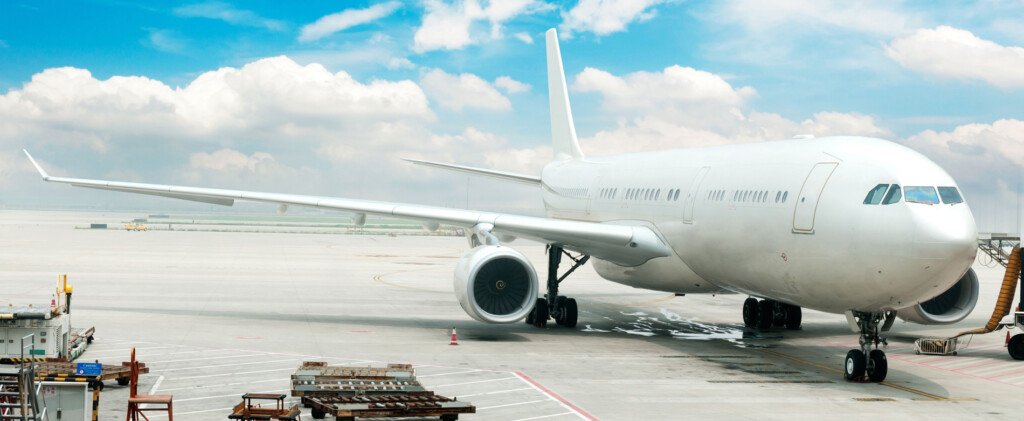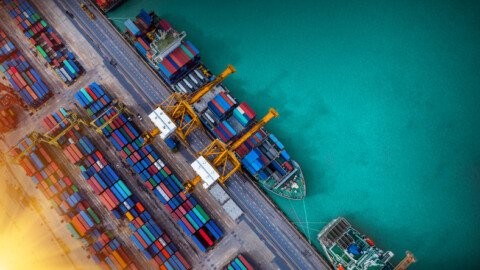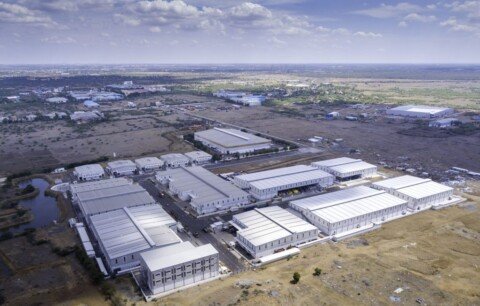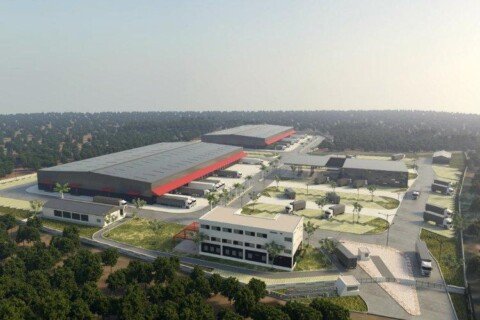Transportation of COVID-19 vaccines is the next phase of ongoing air cargo industry efforts to support pandemic relief around the world. Airlines has a long history of supporting relief efforts when disasters strike, using its network and expertise to deliver for good. They say this is among the most important work in the history of their operations and are honoured to be a part of the effort to help end this pandemic, as they exhibit outstanding logistics capabilities, which is critical to get vaccines to those who need them across countries. We talk to the top cargo carriers to know more – few as the only ones operating from their region and high hopes surround their capabilities; they are ready to prove true to their founding mission.
Upamanyu Borah
Air freight has become an essential source of income for many airlines and ground handlers, due to the coronavirus outbreak and the collapse of the passenger market. In addition, air freight proved itself as a reliable life-line for many businesses for their supply chains.
Air freight has been essential for the restart of many economies and thus clearly has a global interest. This has, however, called for extra attention in the positioning of the air freight product within the slimmed-down airlines and airport organisations. The new structure will see cargo, along with route and business development, traffic analysis and forecasting, subsumed into majority of aviation operations.
Preparedness and response progress report
As the world prepares to trade the first batches of COVID-19 vaccines for mass use, all eyes are on the air freight industry – and it has showed remarkable initial signs of being able to cope.
Air cargo executives already say that much of the concern has focussed on airline capacity since the outbreak, though with many passenger aircraft still underemployed, it won’t pose any serious problem.
To ensure that the entire air cargo and logistics stakeholders are prepared for the worst case scenarios, cross-industry representatives such as Pharma.aero– an initiative by Brussels and Miami Airport based upon the International Air Transport Association (IATA) CEIV programme– has set up a working group to examine the issues surrounding vaccine transport. Pharma.Aero together with The International Air Cargo Association (TIACA) have constituted a dedicated taskforce, composed of industry representatives and members of both associations for Project Sunrays, which aims to establish useful guidelines for the proper handling, storage, and transportation of huge volumes of COVID-19 vaccines.
“Since its inception in 2016, Pharma.Aero has been active in developing different projects together with its partner members, both pharma shippers and operators in air freight pharmaceuticals. Many projects lead to different approaches and new insights in what we as an industry represent. Ever since, we have seen more industry collaboration and cooperation amongst airport communities. Two specific projects underlining this are the Brussels Airport and Hong Kong International Airport corridor project and the recent Sunrays project,” Frank van Gelder, Secretary General of Pharma.Aero told CargoConnect.
“Despite the differing local regulations, Pharma.Aero is tied together and shares common objectives through the IATA CEIV Pharma standards. This allows our members to speak the same language and pursue common goals; practices and interpretations of compliance can be openly discussed and compared. One of the examples was the series of three webinars recently organised by Pharma.Aero on the acute, mid and long-term impact of the COVID 19 pandemic.”
“We had the opportunity to compare different practices during the first impact of the pandemic. Based on certain feedbacks and practices, we were able to initiate a next ‘Project Sunrays’ together with TIACA on the COVID 19 vaccines readiness,” van Gelder noted.
The latest Sunrays project report shows that 46% of air cargo industry stakeholders, including airlines, freight forwarders, ground handlers, airport operators and IT solution providers, now feel well prepared for the transportation of COVID-19 vaccines, a significant increase compared to only 28% feeling ready two months ago. Although the improvement is seen across the whole industry, ground handlers, who were the least prepared in September, reported the strongest jump in preparedness.
Airlines leading from the front line
Since airline operators have successfully adapted to the new normal in a bid to keep supply chains operational, trade flowing and economies running, despite being challenged by a lack of capacity and rising prices, many carriers worked on and already developed their own approach.
Air France KLM Martinair Cargo
Back in August, Air France KLM Martinair (AFKLMP) Cargo formed a taskforce to define the steps needed to help ship COVID-19 vaccines. Working in close consultation with the pharma industry and related forwarders, the airline has assessed specific requirements for shipping potential coronavirus vaccines. Besides, the carrier has been adapting its operation in terms of equipment and dedicated monitoring and service, as well as the capacity it can offer.
AFKLMP has invested in upgrading infrastructure at both its hubs, Paris Charles de Gaulle (CDG) and Amsterdam Schiphol (AMS), and fully merged the booking and service options via the digital portal myCargo, offering the transparency customers need.
The European airline group, which believes its share in this niche market segment has grown ‘significantly’ in recent years, has also focussed on improving training programmes for its staff, as well as the creation of specialised teams focused on its pharma customers. It has also deliberately sought out partnerships with ground handling agents (GHAs) at all relevant pharma destinations to provide state-of-the-art pharma handling services, notes the statement.
In November, after months of preparation, AFKLMP confirmed it had already successfully shipped the first COVID-19 vaccines.
Recently, AFKLMP also announced that it has signed a new agreement with market leading temperature-controlled container manufacturer va-Q-tec, allowing the airline to offer their latest sustainable, advanced passive containers to customers. With this, AFKLMP has expanded its range of pharmaceutical solutions for customers. va-Q-tec’s advanced passive containers can maintain various temperature ranges between -80°C and +25°C, set at the start of the journey, for up to 10 days, without any external power supply.
To maintain the temperatures down to -60°C, va-Q-tec’s advanced passive containers do not need extra dry ice. A small amount of dry ice is used – but significantly less than in conventional solutions to hold even lower temperatures down to -80°C. This reduces the overall use of dry ice, significantly reducing CO2 emissions. The sustainability of va-Q-tec’s innovative product and service portfolio will contribute to AFKLMP’s own efforts to work towards a greener future.
Exclusively speaking to us, GertJan Roelands, AFKLMP’s SVP- Sales & Distribution said, “AFKLMP started a taskforce five months ago to augment preparedness to ship COVID-19 vaccines, taking into account all the potential requirements (-700C, 20C to 80C, etc.). We have extended our taskforce by cooperating with freight forwarders, airports and GHAs, suppliers, pharmaceutical companies, and government institutions.”
“Since the start of the crisis in mid-March, we have been rebuilding our cargo network step-by-step, in close cooperation with our customers, and route-specifically, with our governments. We have prioritised lanes where there was a direct need to get supply chains moving again. On top of our full freighter fleet, we have been utilising our passenger fleet for cargo-only flights and charters. Doing this allowed us to rebuild a network of >100 long-haul destinations. The strong local presence of our sales and distribution network combined with our digital offering ‘myCargo’ made it possible to optimise flights, both eastbound and westbound.”
“We have invested continuously in our pharma capabilities, which we consider to be a strategic growth segment. Last year, we introduced a new cool room at Schiphol that utilises hybrid temperature technology. We are currently expanding our cool room facility by an additional 2,061 cubic metres to accommodate the anticipated growing demand tied to the distribution of COVID-19 vaccines. Similar investments are being made at our Paris CDG hub,” Roelands said.
Lufthansa Cargo
German cargo carrier Lufthansa, which recently inaugurated its cold chain facilities in Munich and Chicago, seems to be ready to handle any surge in pharmaceutical shipments. The 1,000 sq mt pharma hub at Munich Airport has capacity for 96 pallets and loose cargo in two different temperature ranges (20C to 8°C and 15°C to 25°C) and a freezer (down to -18°C). In addition, Lufthansa has also opened a similar 800 sq mt pharmaceutical facility in Chicago’s O’Hare Airport (ORD) in the US. Since June, the facility has been providing space on several levels for up to 54 pallets and 102 cool containers in two different temperature ranges.
“The first step was to create transparency and keep ourselves up to date with the constant information flow regarding the progress and development of COVID-19 vaccines,” said Thorsten Braun, Senior Director- Industry Development and Product Management at Lufthansa Cargo told us.
“Based on our findings, we have put in place a task force comprising of nine different working groups. Special attention is given to the storage and handling of frozen shipments, temperature-controlled transportation on the tarmac, capacity and network adjustments, to a name few. Simultaneously, we maintain a very close dialogue with customers to align our actions and optimise the supply chain as a whole,” he said.
“Our brand new Pharma Hub in Munich has an area of almost 1,000 sq mt dedicated to temperature-sensitive freight only. All temperature ranges between -20°C to +25°C can be offered including a dedicated area for active containers.”
“In Chicago, we upgraded our existing warehouse, turning the facility into a state-of-the-art pharma centre with a total capacity of 8,600 sq ft dedicated for pharma shipments. However, infrastructure is only part of the equation; we have a highly motivated crew serving our customers with the best experience and top-class pharma expertise.”
Most of the pharmaceutical shipments carried by Lufthansa Cargo are handled at the Frankfurt hub. There, the existing Lufthansa Pharma Hub was last extended by around two-thirds to 8,000 sq mt in 2018. It was one of the first Pharma Cool Centres in the world to be IATA CEIV Pharma certified.
By the first quarter of 2020, Lufthansa Cargo’s worldwide network is expected to comprise 31 CEIV Pharma certified stations. Additionally, the airline is continuously expanding the CEIV network within its operations.
From January 11, Lufthansa has been offering COVID-19 Temp Premium– a product tailored to shipping the COVID-19 vaccine. Under the new premium option, the carrier is offering an enhanced service to those looking to ship vaccines, including priority shipping and personalised monitoring of shipments.
“One of the biggest challenges in the current situation is the lack of capacity due to contraction of belly freight. We at Lufthansa Cargo have responded to the situation by increasing the utilisation of our freighters and introducing so called ‘preighters’, slightly modified passenger aircraft used for transporting cargo. We accelerated key digitisation projects during the pandemic such as ‘Rapid Rate Response’,” Braun said.
Turkish Cargo
The freight division of Turkey’s national flag carrier Turkish Airlines increased its global market share to 5.4 per cent from 3.9 per cent by achieving a growth of 67 per cent within the first half of 2020 as it carried one of each twenty air cargo carried around the world, despite a dampening aviation industry crisis led by the coronavirus pandemic.
Amidst the pandemic, carrying pharmaceuticals to the key and certificated destinations such as Mumbai, Brussels, Istanbul, Singapore, Dubai, Basel, London and Amsterdam, Turkish Cargo created a global pharmaceutical corridor between more than 400 destinations, and maintains its commitment for transporting the COVID-19 vaccines that are ready or being developed.
Additionally, having increased its capacity for cold chain shipments by 30 per cent, working with the largest suppliers of active containers in the industry, Turkish Cargo enhanced its cold chain shipment scale to 25,000 tonnes per month with the capacity to service additional 150 aircraft pallets on instantaneous basis, complemented by its ‘TK Pharma’ product which has been designed for carrying pharmaceuticals at par with global standards.
In fact, it is the first air cargo brand that holds all of the three certificates– the CEIV Pharma, CEIV Fesh, and CEIV Live Animals, issued by IATA, ensuring protection to the highest standards, supported by its special cargo storage rooms with various temperatures ranges available in its 3,500 sq mt facilities at Istanbul and Ataturk airports.
In order to satisfy the increased demand for transportation of the vaccines, pharmaceuticals and temperature-controlled cargo, Turkish Cargo commissioned the temperature-controlled smart warehouse with an additional area of 1,200 sq mt.
In the meantime, Turkish Cargo keeps extending its Qualified Envirotainer Provider Training and Quality Programme (QEP) accreditation in line with industry standards. The QEP programme recognises air cargo carriers that operate Envirotainer containers in compliance with Good Distribution Practice (GDP) for temperature-sensitive cargo. The carrier has received QEP accreditation from Envirotainer at its hub– Istanbul Atatürk Airport, as well as several other stations across its network– Mumbai, Hyderabad, Frankfurt, Tel Aviv and Seoul.
“We have experienced a serious increase in demand for Turkish Cargo pharma product, designed for pharmaceutical transportation. As an IATA CEIV Pharma certified air carrier, we offer industrial solutions such as dedicated temperature-controlled storage rooms, active containers, and thermal dollies so as to maintain the cold chain, through our specialised TK Pharma Care Team,” Burak Ömeroğlu, Vice President- Cargo Sales (MESA) at Turkish Cargo said while speaking to us.
“As an airline and warehouse operator, Turkish Cargo is closely following up on technological and infrastructural developments in the global pharmaceuticals market. This way, Turkish Cargo is aware of the needs of all stakeholders of the time-sensitive air cargo sector– from integrity of the supply chain to trainings, standards and regulations, internal and external audits– resulting in better business communication.”
“Turkish Cargo has been maintaining its activities in order to realise the best transportation of time and temperature-sensitive pharma and healthcare products so as to make its network even more integrated via Envirotainer operation requirements by adding QEP accreditation to its important Hyderabad and Mumbai stations.”
“Owing to the new dedicated pharma facility that is being constructed at the new Istanbul Airport Mega Hub, Turkish Cargo aims to be part of one of the most important transit pharma hubs between Asia and Europe,” Ömeroğlu added.
Notably, Turkish Cargo has become one of the first to showcase it capabilities as it recently carried COVID-19 vaccines manufactured in China to Brazil, covering a distance of approximately 17,000 kilometers. The COVID-19 vaccines, loaded inside 7 Envirotainer containers equipped with dedicated cooling systems, were transported safely from Beijing to Sao Paulo, the biggest city of the South America, via a connecting flight from Istanbul.
In December, Turkish Cargo carried the first batch of COVID-19 vaccines from Beijing to the country’s capital Ankara via a dedicated flight. Sinovac’s COVID-19 vaccines that were procured from China were delivered to Turkish Ministry of Health.
Qatar Airways Cargo
World’s largest pure air cargo carrier, Qatar Airways has invested considerably in quality handling, infrastructure, facilities, people and procedures at each of its pharma stations, which span over 77 destinations, with the recent addition of Osaka, Japan; Campinas, Brazil; Santiago, Chile; and Bogotá, Colombia.
In the face of logistical challenges faced globally by the industry, Qatar Airways Cargo kept supporting global trade by operating its scheduled freighters, special charters and freight only passenger flights, offering businesses with much-needed capacity and access to markets. Qatar Airways Cargo operated a significant cargo schedule with approximately 175 flights per day during the course of the first few months of the pandemic.
The cargo airline ensures the fastest transfer at Doha through its unique Quick Ramp Transfer (QRT). Besides, it is the only carrier in the Middle East to offer refrigerated or reefer truck services for ramp transfers at the home hub.
QR Pharma, the cargo airline’s specialist product developed for pharmaceuticals and healthcare products, offers active solutions to maintain a consistent temperature throughout the transportation chain, as well as passive solutions, which keep the pharmaceuticals within a defined temperature band during all stages of the journey.
Its innovative Climate Control Centre situated at the airside at Hamad International Airport (HIA) is equipped with segregated temperature-controlled sections for storing pharmaceuticals transiting the hub. The centre has two zones operating for 2°C to 8°C or 15°C to 25°C, with a capacity to hold a total of 156 ULDs at a time, in addition to the 64 temperature-controlled cells at the cargo terminal’s cold room.
With above, Qatar Airways Cargo signed an agreement with SkyCell for temperature-controlled hybrid containers. This will allow the cargo carrier to expand its variety of transportation solutions and offer additional pharmaceuticals and healthcare cargo services.
Most recently, IATA awarded its CEIV Pharma certification to Qatar Airways Cargo for its expertise and efficient handling of pharmaceuticals and life science products. The certification covers Qatar Airways Cargo’s operations, its robust quality management system and supplier management processes in Doha.
Qatar Aviation Services, the airline’s ground handling partner also received the IATA CEIV Pharma certification for its pharma handling standards within industry compliant warehouses at HIA.
“We have set robust pharma standards and operating procedures at our hub as well as other stations while also providing rigourous training to our staff. The HIA cargo terminal operates in accordance with the highest industry standards and is fully compliant with good distribution practice (GDP), providing a seamless cool chain for temperature-sensitive pharmaceuticals,” Guillaume Halleux, Chief Officer- Cargo at Qatar Airways mentioned while speaking to us.
“Through QR Pharma, we offer our customers temperature-controlled air freight for pharmaceuticals and healthcare products, with both active and passive solutions in cold chain logistics. A range of temperature-controlled containers from various partners like Envirotainer, CSafe, DoKaSch, Va-Q-Tec, and most recently, hybrid containers from SkyCell have been made available for our pharma clients.”
“We have also invested in an airside Climate Control Centre at HIA which was inaugurated around the time of the blockade. The 2,470 sq mt transit facility with storage capacity of 156 unit load devices (ULDs) and dual-zoned temperature-controlled rooms enhances our ability to process high volumes of pharmaceuticals quickly, within a climate-controlled environment. It has an estimated throughput capacity of 285,000 tonnes annually. In addition, there are 64 temperature-controlled cells within the cargo terminal’s cold room inside the warehouse,” Halleux said.
“At the hub, we are investing in expansion of our reefer trucks. Additonally, a vast fleet of temperature-controlled reefer trucks at our hub helps to eliminate ramp exposure.”
“The safe transport of the global COVID-19 vaccines is going to be the largest and complex challenge ever. Nonetheless, with all these investments and preparations, we are enhancing our product offering and gearing up to support the logistics requirements around the global vaccination plan,” he noted.
Emirates SkyCargo
Emirates SkyCargo, the freight division of UAE’s biggest airline Emirates has continued to introduce innovative cargo solutions in line with rapidly evolving market conditions since the start of the pandemic.
With close to 100 daily cargo flights operated to a destination network spanning more than 75 cities across six continents, Emirates SkyCargo lead the global cargo industry during the early days of the global pandemic in delivering essential supplies and commodities to people around the world.
The air cargo carrier also helped energise and strengthen Indian supply chains by operating dedicated cargo flights on freighter and passenger aircraft, carrying essential goods and medical supplies amid critical times.
Taking a lead in the supply chain for the global distribution of vaccines, Emirates SkyCargo has set up the world’s largest EU GDP compliant airside hub in Dubai, dedicated for the COVID-19 vaccine. In addition to world-class ‘fit for purpose’ infrastructure, the facility will offer value-added services such as repackaging, re-icing and redistribution of the vaccine. The air cargo carrier has also set up a rapid response team to coordinate requests for the movement of the vaccine.
“In terms of aircraft capacity, earlier this year, we started operating our Boeing 777-300ER passenger aircraft in cargo only mode so as to counter the capacity crunch due to the suspension of passenger flight s. This had never been done before and our team had to work within a very short time to plan our new route network, work with our partners across the world and the relevant authorities to get the required permissions. Our Boeing 777-300ERs are wide-body aircraft with around 40-50 tonnes of belly hold capacity (without passengers),” Julian Sutch, Global Pharma Sales Manager at Emirates SkyCargo informed CargoConnect.
“We were able to deploy these and increase our destination network from about 35 (served by our 11 Boeing 777 freighters) at the end of March to around 50 by April. In the next two months, we further increased our network to more than 75 destinations. Currently, we’re flying to 135 destinations across six continents.”
“Emirates SkyCargo has over two decades of experience in transporting temperature-sensitive pharmaceuticals including vaccines. Every day we carry tonnes and tonnes of pharmaceuticals and critical care medicines across our global network covering six continents. In 2019 alone, Emirates SkyCargo transported more than 75 million kilograms of pharmaceuticals on its aircraft.”
“In 2016, we introduced a specialised product ‘Emirates Pharma’ and invested heavily in developing world class EU GDP-certified ‘fit for purpose’ facilities dedicated for pharmaceuticals at our hub in Dubai,” Julian added.
“As part of our ‘pharma corridors’ programme, over the last few years, we have worked with our ground handling partners at all major pharma origin and destination airports to ensure that we offer enhanced cool chain protection. This means that we are well-positioned to rapidly and securely transport pharma cargo from where it is manufactured to its final destination.”
“Over the years, we have also invested in developing unparalleled infrastructure, capacity, capability, and the unique expertise required to handle pharma cargo at Emirates SkyCentral at Dubai World Central (DWC). These factors have helped us remain the forerunner in the air cargo sector.”
“For flying and handling a potential COVID-19 vaccine, Emirates SkyCargo has set up the world’s first dedicated airside cargo hub at Emirates SkyCentral DWC,” he said.
“The state-of-the-art, EU GDP-certified facility can hold around 10 million vaccine vials at 20C to 80C temperature range at any given time. It has over 4,000 sq mt of temperature-controlled pharma storage area that will serve as a dedicated anchor hub for cold chain storage and regional and global distribution of the vaccine. In addition, the hub will offer re-icing and repackaging services for global distribution of the vaccines. It will also have rapid response teams to coordinate vaccine transportation requests and to streamline the same.”
At present, the carrier is working with global pharmaceutical companies, including Pfizer, to address the logistical challenges of distributing coronavirus vaccines.
In November, Emirates SkyCargo helped transport the first Russian COVID-19 vaccine Sputnik V for clinical trials to Abu Dhabi in collaboration with temperature-controlled transportation specialist Envirotainer. The vaccines loaded into an Envirotainer RKNt2 container were shipped by the airline from Moscow to Dubai International Airport (DXB).
In a first, Emirates SkyCargo notched another milestone by flying COVID-19 vaccines manufactured by Pfizer-BioNTech to the UAE on December 22. The containers with the vaccines were unloaded on priority from the aircraft and then taken to Emirates SkyCargo’s dedicated pharma facility Emirates SkyPharma where it awaited clearance for delivery to the Dubai Health Authority (DHA).
Cathay Pacific Cargo
Hong Kong-based Cathay Pacific, world’s fifth largest cargo carrier, renowned for its strong network in Asia, Australia and New Zealand, has remained consistent in maintaining the supply chain amidst the pandemic and transporting essential products worldwide. Additionally, its state-of-the-art cargo terminal at Hong Kong International Airport (HKIA) offers a broad spectrum of logistical solutions for the airfreight industry.
In an effort to introduce additional cargo capacity, the carrier reconfigured two Boeing 777-300ER passenger aircraft into ‘preighters’, with seats removed in the Economy and Premium Economy cabins to offer 12 tonnes of additional cargo under extra safety and security measures.
Cathay Pacific has been utilising its freighters to the fullest while also mounting 728 pairs of cargo only passenger flights. This was 152 pairs – or 26 per cent – more than they operated in October 2020, and 30 of these carried cargo in passenger cabins.
Most recently, the airline along with its cargo terminal Cathay Pacific Services Limited (CPSL) and ground-handling subsidiary Hong Kong Airport Services (HAS) has been re-certified with IATA’s CEIV Pharma accreditation, as it actively prepares itself to meet the challenge of shipping temperature and time-sensitive vaccines across its network.
Currently, Cathy Pacific is expanding its cold storage facilities at its HKIA cargo terminal to temporarily hold more than 8.6 million vaccine doses a day. Its current capacity is about 7.1 million doses and a new cold storage room will allow for a further 1.5 million doses.
The carrier has also rolled-out in a new generation track-and-trace system ‘Ultra Track’ to allow freight forwarders to monitor the condition of vaccine shipments in real-time. The technology solution uses a low-energy Bluetooth transmitter that can record and transmit GPS positions, temperature, vibration and humidity in real-time.
In addition, shipments using Ultra Track will be monitored 24×7 by dedicated cargo professionals from the newly established Operations Control Centre at HKIA. The team will instruct ramp and cargo terminal staff to take proactive steps to ensure the storage requirements of vaccines are maintained.
“We realise the expertise needed to transport pharmaceutical products and hence offer a dedicated solution ‘Pharma LIFT’ that provides customers with features such as Active Pharma, Heat and Cooling Parma, Passive Pharma as well as Room Temperature Pharma – each of these features are specific to a particular need of the product. The service is specially curated for pharmaceutical products and caters to the different range of temperature requirements for shipments varying from 0°C to 25°C as well as sensitive frozen products with temperatures as low as -25°C,” said Rajesh Menon, Regional Head of Cargo for South Asia, Middle East and Africa at Cathay Pacific Cargo informed CargoConnect.
“Furthermore, all our pharma products including Passive Pharma and Room Temperature Pharma are efficiently handled by trained professionals and are well-guided, stringent and integrated SOPs that include the usage of our thermal dollies at HKIA.”
“Meanwhile, our key service partner Envirotainer upgraded its active container inventory and now offers a full range of temperature-controlled containers at two of our stations– Mumbai and Hyderabad. This also includes all four types of active temperature-controlled containers– the RKN t2, RAP t2, RKN e1, and RAP e2. Apart from this, we have started offering cooltainers of several other service partners like CSafe, DoKaSch, Sonoco, SkyCell, Tower CC, and va-Q-tec,” Menon said.
“Considering we are CEIV Pharma certified and also have arrangement of a dedicated CEIV accredited temperature-controlled storage facility at Cathay Pacific Services Ltd (CPSL) – our warehousing facility at HKIA spanning over 2,000 sq mt, we are able to store products at temperatures ranging from -25°C to +25°C, thus providing our customers with a holistic solution,” he added.
“Our team of experts has put in great effort and time to include some integral product features into our offerings to provide the highest possible quality of experience. We have introduced a ULD Blockchain system that makes locating, allocating, and transferring load devices between forwarders, the airline, and other concerned parties transparent and seamless.”
“Further, our automatic communication system is a pre-alert system signalling when an active container temperature reading reaches a specific threshold and requires preventive action. Lastly, online temperature tracking for Active Pharma, and Heat and Cooling Pharma is also available for utmost safety and convenience,” Menon noted.







